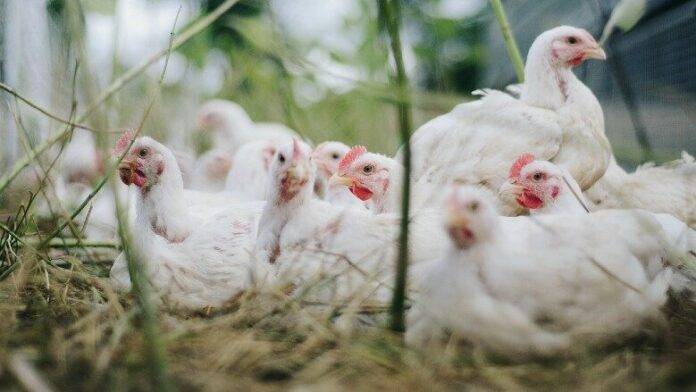Congressional Leaders Advocate for Chicken Export Protections Amid HPAI Concerns
The co-chairs of the Congressional and Senate Chicken Caucuses, Senators Roger Wicker (R-MS) and Chris Coons (D-DE), along with Representatives Steve Womack (R-AR) and Jim Costa (D-CA), have taken a proactive stance in addressing the potential impacts of avian influenza on the U.S. poultry industry. In a recent communication to the U.S. Department of Agriculture (USDA), these lawmakers sought assurances to safeguard American chicken exports in the event that vaccination is considered as part of a government strategy to combat highly pathogenic avian influenza (HPAI).
In light of the recent spike in egg prices attributed to HPAI outbreaks, discussions around the vaccination of commercial poultry flocks have intensified. The lawmakers emphasized the need for clear differentiation among various poultry sectors to protect domestic farmers and maintain global trading relationships. They cautioned that vaccination in any poultry sector—be it egg layers, turkeys, broilers, or ducks—could jeopardize the entire export market for U.S. poultry products.
Understanding the Impact of HPAI on Different Poultry Sectors
The members of Congress highlighted that broilers, which are chickens raised for meat, represent a distinct industry from the egg-laying sector. Each sector has its own unique supply chains, geographic distribution, housing structures, bird lifespans, biosecurity practices, and trade portfolios. During the ongoing HPAI outbreak, statistics from the USDA reveal that over 77% of affected birds have been commercial egg-laying hens, 12% commercial turkeys, and only 8% commercial broilers. Other impacted species include ducks, backyard poultry, and game birds.
The lawmakers pointed out a significant challenge: many U.S. trading partners do not recognize vaccinated countries as free from HPAI. This is primarily due to concerns that vaccines could mask the presence of the virus. As a result, trading partners may refuse to accept exports from countries that implement vaccination programs, which can extend to specific product categories, certain regions, or even encompass all poultry from the vaccinated country. For instance, if an egg-laying hen in Michigan receives an HPAI vaccine, it is likely that the U.S. would face barriers exporting an unvaccinated broiler chicken from Mississippi.
The Economic Stakes for the U.S. Poultry Industry
The U.S. broiler industry is the second largest exporter of chicken worldwide, accounting for approximately 16% of its total chicken meat production, valued at over $5 billion annually. The lawmakers underscored that the discussion surrounding HPAI vaccination carries significant economic implications. They warned of potential losses exceeding $10 billion annually to the U.S. economy, particularly impacting American broiler farmers who have been relatively less affected by HPAI outbreaks.
The lawmakers further articulated that while some trading partners might impose temporary restrictions, others could enact indefinite bans on imports. They cautioned that a widespread HPAI vaccination program in the U.S., without first strengthening animal health trade agreements, could provoke actions from trading partners that would severely harm the domestic poultry sector.
Support from Industry Leaders
National Chicken Council President Harrison Kircher expressed gratitude to Senators Wicker and Coons, as well as Representatives Womack and Costa, for their leadership in this critical matter. He affirmed the Council’s agreement that any potential HPAI strategy proposed by the administration must include robust trade protections for U.S. broiler producers. Kircher emphasized the devastating impact that export losses could have on thousands of family farmers who raise chickens, noting that the industry least affected by bird flu stands to lose the most in this scenario.
Kircher also expressed support for the administration’s objectives to mitigate food inflation, reduce regulatory burdens, and enhance global competitiveness. He reaffirmed the industry’s readiness to collaborate with the Biden administration and Secretary Rollins to ensure that American poultry farmers are not unduly harmed in the process of addressing the HPAI crisis.
Conclusion
As the U.S. navigates the complexities of managing HPAI, the emphasis placed by congressional leaders on protecting the chicken export market reflects a deep understanding of the interconnectedness of agriculture, trade, and economic stability. The potential ramifications of vaccination strategies necessitate a thoughtful approach that prioritizes both animal health and the livelihoods of American farmers. The dialogue initiated by these lawmakers serves as a crucial step toward ensuring that the U.S. poultry industry remains resilient in the face of ongoing challenges.
For further details, please refer to the National Chicken Council.


